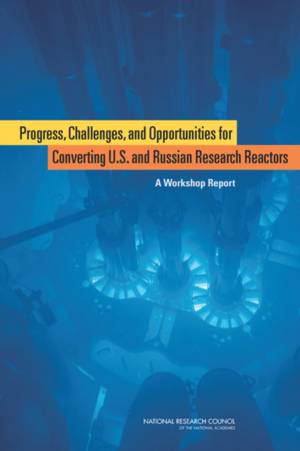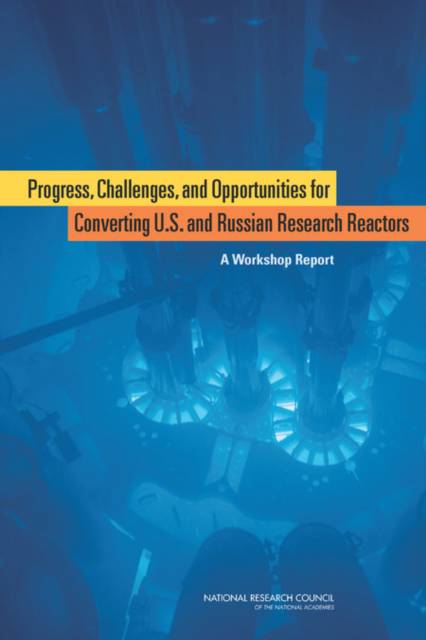
- Retrait gratuit dans votre magasin Club
- 7.000.000 titres dans notre catalogue
- Payer en toute sécurité
- Toujours un magasin près de chez vous
- Retrait gratuit dans votre magasin Club
- 7.000.0000 titres dans notre catalogue
- Payer en toute sécurité
- Toujours un magasin près de chez vous
Progress, Challenges, and Opportunities for Converting U.S. and Russian Research Reactors
A Workshop Report
Russian Academy of Sciences, Russian Committee on Progress Challenges and Opportunities for C, National Research Council, Division on Earth and Life Studies, Nuclear and Radiation Studies Board, U S Committee on Progress Challenges and Opportunities for ConveDescription
Highly enriched uranium (HEU) is used for two major civilian purposes: as fuel for research reactors and as targets for medical isotope production. This material can be dangerous in the wrong hands. Stolen or diverted HEU can be used-in conjunction with some knowledge of physics-to build nuclear explosive devices. Thus, the continued civilian use of HEU is of concern particularly because this material may not be uniformly well-protected. To address these concerns, the National Research Council (NRC) of the U.S. National Academies and the Russian Academy of Sciences (RAS) held a joint symposium on June 8-10, 2011.
Progress, Challenges, and Opportunities for Converting U.S. and Russian Research Reactors summarizes the proceedings of this joint symposium. This report addresses: (1) recent progress on conversion of research reactors, with a focus on U.S.- and R.F.-origin reactors; (2) lessons learned for overcoming conversion challenges, increasing the effectiveness of research reactor use, and enabling new reactor missions; (3) future research reactor conversion plans, challenges, and opportunities; and (4) actions that could be taken by U.S. and Russian organizations to promote conversion. The agenda for the symposium is provided in Appendix A, biographical sketches of the committee members are provided in Appendix B, and the report concludes with the statement of task in Appendix C.
Spécifications
Parties prenantes
- Auteur(s) :
- Editeur:
Contenu
- Nombre de pages :
- 126
- Langue:
- Anglais
Caractéristiques
- EAN:
- 9780309253208
- Date de parution :
- 24-03-12
- Format:
- Livre broché
- Format numérique:
- Trade paperback (VS)
- Dimensions :
- 152 mm x 229 mm

Les avis
Nous publions uniquement les avis qui respectent les conditions requises. Consultez nos conditions pour les avis.






